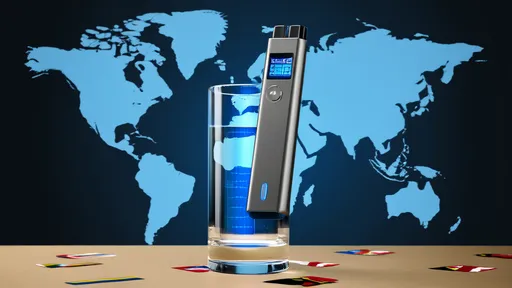In our fast-paced world where travel plans change at a moment's notice and business meetings cross continents daily, few things cause more panic than realizing your essential documents have gone missing. The sinking feeling when you reach for your passport or ID and find empty space where it should be can derail even the most carefully laid plans. Fortunately, the digital age has revolutionized document recovery, making what was once a bureaucratic nightmare into a manageable process - if you know where to look and how to act quickly.
The 48-Hour Window: Why Timing Matters
When documents disappear, the first two days become critical. Most countries and institutions have established accelerated procedures for emergency replacements, but these often require immediate action. The window exists because authorities understand that stolen documents could be used maliciously if not reported promptly. Furthermore, many travelers discover their loss just before crucial flights or appointments, creating legitimate emergencies that governments have adapted to address.
Modern digital infrastructure has transformed this process dramatically. Where applicants once waited weeks for replacement passports or spent days visiting multiple government offices, streamlined online systems now allow for near-instant verification and processing. The key lies in understanding which platforms to use, what information to prepare, and how to navigate the digital landscape efficiently.
Digital First Steps: Locking Down Security
Before rushing to replacement services, any document loss requires immediate security measures. Financial documents, passports, or national IDs all represent potential goldmines for identity thieves. The moment you realize something's missing, begin with online fraud prevention. Most banking institutions offer 24/7 hotlines or apps for immediate card freezing. Government passport agencies maintain similar emergency reporting lines that instantly flag lost documents in global databases.
This digital paper trail serves two vital purposes. First, it creates an official record of the loss, which most replacement services will require. Second, it protects against future fraud attempts. Many applicants make the mistake of skipping this step in their hurry to obtain replacements, only to face complications when replacement services ask for police report numbers or fraud prevention reference codes.
The Paperless Paradox: How Online Systems Accelerate Physical Document Recovery
Ironically, the very systems designed to reduce paper dependency have made physical document recovery faster. Centralized databases now store biometric information, travel histories, and personal details that once existed only on the documents themselves. When applying for emergency replacements, these digital footprints allow verification without the missing paperwork.
Most national passport services operate priority online portals separate from standard renewal systems. These emergency channels typically require uploaded copies of secondary IDs, recent photographs meeting strict digital specifications, and payment for expedited processing. The efficiency comes from pre-verified digital identities - if you've previously registered for government online services or global entry programs, your existing digital profile dramatically speeds approval.
Regional Realities: Navigating Different Systems
Document replacement procedures vary significantly by jurisdiction, but nearly all have adopted some form of accelerated digital processing. European Union countries benefit from shared databases that allow cross-border verification, while U.S. states have implemented real-time DMV data sharing for ID replacements. Asian financial hubs like Singapore and Hong Kong lead in completely digital provisional IDs that bridge the gap during physical document production.
The common thread across regions is the move toward mobile verification during the replacement process. Many systems now send verification codes to registered phones or require biometric authentication through government apps. This shift acknowledges that while physical documents get lost, most people maintain continuous access to their digital devices - creating a more reliable verification channel.
The Hidden Costs of Speed: Budgeting for Emergency Replacements
While technology has made rapid replacements possible, it hasn't made them cheap. Expedited processing typically carries significant premiums over standard fees. Passport replacements can cost double or triple the normal rate when processed within 48 hours, and some jurisdictions impose additional "crisis handling" surcharges for weekend or holiday processing.
Financial planning becomes part of the emergency response. Travel insurance policies increasingly cover document replacement costs, but only if the loss meets specific criteria and gets reported properly. Frequent travelers should pre-research coverage details and keep policy numbers accessible separately from their documents. For those without insurance, maintaining an emergency fund specifically for such incidents prevents financial shock during an already stressful situation.
The Human Factor: When Digital Systems Fail
Despite technological advances, human elements still impact emergency replacements. Case workers reviewing applications retain discretion in borderline situations, and system errors can delay even perfectly filed requests. Applicants often find that a well-timed phone call to customer service - as opposed to relying solely on digital forms - can resolve sticking points.
This reality underscores the importance of maintaining backup human contacts. Document recovery specialists, embassy liaisons, or even corporate travel departments often have direct lines unavailable to the public. Building these relationships before emergencies occur - through travel membership programs or professional networks - provides invaluable shortcuts when every minute counts.
Future-Proofing: Beyond the 48-Hour Crisis
The smartest document holders use their emergency experience to prevent future crises. Digital document storage has evolved beyond simple scans in phone galleries. Encrypted cloud services now offer secure, accessible document repositories with sharing functionalities that meet official verification standards. Some jurisdictions even accept these digital copies as temporary proof of identity during replacement processing.
Physical precautions still matter too. RFID-blocking document holders prevent digital skimming of passports and IDs, while simple habits like consistent storage locations reduce forgetfulness. Perhaps most importantly, maintaining a document "tree" - knowing which IDs rely on others for replacement - helps prioritize recovery steps during future incidents.
The modern reality of document recovery combines digital efficiency with timeless organizational skills. While no one plans to lose essential paperwork, understanding the 48-hour replacement landscape transforms panic into manageable action. As global systems continue integrating, what currently qualifies as "emergency" processing may soon become standard - but until then, swift digital action remains your best insurance against document disasters.

By /Jul 8, 2025

By /Jul 8, 2025

By /Jul 8, 2025

By /Jul 8, 2025

By /Jul 8, 2025

By /Jul 8, 2025

By /Jul 8, 2025

By /Jul 8, 2025

By /Jul 8, 2025

By /Jul 8, 2025

By /Jul 8, 2025

By /Jul 8, 2025

By /Jul 8, 2025

By /Jul 8, 2025

By /Jul 8, 2025

By /Jul 8, 2025

By /Jul 8, 2025

By /Jul 8, 2025